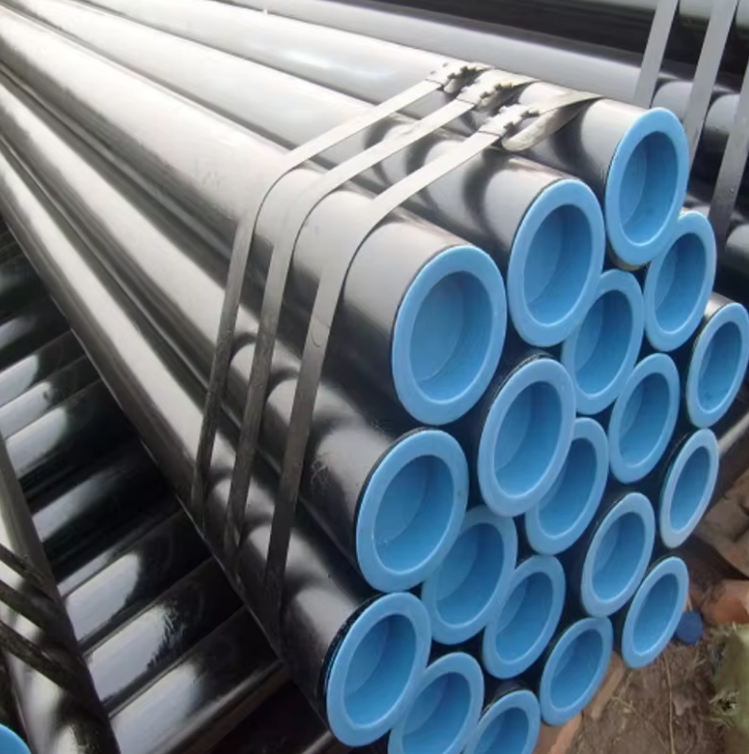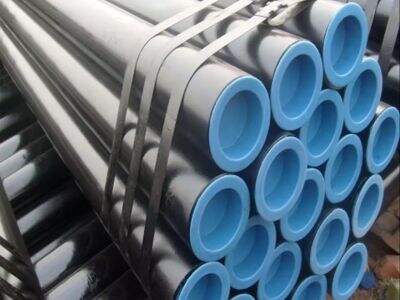A Beginner's Guide to Nickel Alloys: Types, Usage, and Advantage
Introduction:
In general, nickel alloys might be what you are looking for when you want an all-purpose metal that has great application in so many fields. Nickel alloying additions are added elements with nickel to produce improved properties, which may include copper, chromium, iron, and molybdenum. These have versatile uses in sectors such as aerospace, chemical processing, maritime and medicine equipment among others. Here you will find information about types of products that are provided by TOBO GROUP, their advantages and usage.
Types of Nickel Alloys:
Today, the market presents a great number of brands of nickel alloys with the specific features and characteristics. Some of the most common types of nickel alloys include:
1. Inconel: Inconel is a generic name for a series of nickel-based alloys which has excellent strength and oxidation resistance. This type has a high chromium and nickel content; hence, it used in pressure vessels, heat exchangers and gas turbines.
2. Monel: Monel alloy is an alloy that has resistance to corrosion constituting mainly of nickel and copper. It is rather stable in acid and alkaline environments; thus, it is useful for marine engineering, oil, and gas production.
3. Hastelloy: It is basically a type of Nickel based alloy that is commonly used to deal with issues of corrosion and working environments with high temperatures Hastelloy. It is applied in the different chemical processes such as chemical reactors, heat exchangers, and evaporators.
4. Nimonic: Nimonic alloy is a nickel alloy that is used particularly for its heat and oxidation resistant along with the capacity to withstand high stress. It is commonly applied in gas turbines, aircrafts and missile components.

Advantages of Nickel Alloys:
Due to the properties associated with nickel alloys, they are widely demanded by many industries. Some of the benefits and advantages of nickel alloys include:
1. Corrosion Resistance: Nickel alloys like nickel alloy pipe also do not corrode or rust and this makes them to be suitable for uses where they are likely to exposed to very tests conditions such as the marine, chemical and the oil and gas industries.
2. High-Temperature Strength: nickel alloys can withstand high temperatures of up to 1000°C, making them perfect for high-temperature applications particularly gas turbines and furnace linings.
3. Durability and Strength: nickel alloys like nickel alloy flange are strong, durable, and capable of withstanding conditions that are extreme making them ideal for high-stress applications in aerospace and army companies.
4. Flexibility: The nickels alloys are easy to work, weld and fabricate thus making the process of manufacturing easier.
Uses and Applications of Nickel Alloys:
Due to their flexibility and resistance, nickel alloys can be used in numerous processes and various fields of activity. Some of the common uses of nickel alloys include:
1. Aerospace and Aircraft Industry: Some of the applications of these alloys include use in aircrafts and space craft’s part such as the exhaust system, the turbine blades among others an engine part.
2. Chemical Processing Industry: Alloys in Nickel for example alloy fitting are used in reactors, heat exchangers and evaporators for process industries that call for high temperature and corrosion resistant solutions.
3. Medical Equipment Industry: The materials are biocompatible and hence used for production of surgery tools or health enhancements items such as prosthetics and teeth implants.
4. Nuclear Power Industry: It is considered that high – nickel alloys are used in the nuclear power plant equipment and parts for example reactors, fuel cells and steam generator hence, they can sustain high pressure and high temperature.
Safety Measures and Quality Standards:
Indeed, not much is required to be written on the safety mean when it comes to the utilization of nickel alloys. This means that if one has to take swim or engage in any other activity there is need to observe certain precautions to prevent accidental injuries. More to that, items such as nickel alloy flange should be used and worked on following the nickel alloys uses and handling advice. A proper step is to choose nickel alloys of high quality that are safe for use and have met the set standard by the regulatory agencies.
How to Use Nickel Alloys Effectively:
To use nickel alloys effectively, the following should be observed:
1. Select the right type of nickel alloy to be used in the intended application to be served.
2. Abide by the manufacturer’s guidelines and standards in the utilization of nickel alloys.
3. Ensure that you utilize correct tool and equipment to handle nickel alloys include the welding equipment, cutting tools, and protective clothing.
4. PPE for handling nickel alloys should be maintained clean and in good condition so as not affect the quality of the alloys.

 EN
EN
 AR
AR
 BG
BG
 HR
HR
 CS
CS
 DA
DA
 NL
NL
 FI
FI
 FR
FR
 DE
DE
 EL
EL
 HI
HI
 IT
IT
 JA
JA
 KO
KO
 NO
NO
 PL
PL
 PT
PT
 RO
RO
 RU
RU
 ES
ES
 SV
SV
 TL
TL
 VI
VI
 TH
TH
 TR
TR
 GA
GA
 CY
CY
 BE
BE
 IS
IS


